Column: Shuttering USAID diminishes US’s standing
| Published: 02-14-2025 5:33 PM |
For nearly 20 years, I served on the board of directors of Mercy Corps, one of the world’s largest relief and development organizations. During that time, Mercy Corps served more than 500 million people in more than 50 countries, including the most challenging conflict- and disaster-prone regions of the world. The work that Mercy Corps employees and local partners did in Afghanistan during the height of our entanglement led the U.S. ambassador to say that Mercy Corps served American policy interests better and saved more Afghan lives than any organization in the world.
Organizations like Mercy Corps are the face of American foreign policy for the much of the world’s population. The people fleeing the Assad regime to refugee camps in Turkey didn’t see American military or trade officials. The families left homeless from the earthquake in Haiti or the tsunami in Malaysia didn’t see members of the Congressional foreign relations committees. Instead, they saw dedicated and compassionate employees of humanitarian organizations like Mercy Corps, the International Rescue Committee, Catholic Relief Services, and Medecins Sans Frontières.
For most of these humanitarian organizations, the U.S. government through the U.S. Agency for International Development (USAID) is the largest donor and essential to their survival. The 10,000 USAID employees support more than half a million employees working for NGOs, contractors and local partners in refugee camps, disaster zones and impoverished communities.
The work of Mercy Corps and other humanitarian organizations is important, not because Americans have a unique or special responsibility to the unfortunate people of Sudan, Haiti, Iraq, Syria or the dozens of other countries where children and families suffer through dismal lives. Rather, the work is important because it reflects values that we hold dear: compassion, generosity and charity.
Now, the Trump Administration has decided that this assistance and these values are no longer important to the American people. On Jan. 24, the State Department issued a stop-work order for every U.S. foreign assistance program. On Feb. 4, the Department of Government Efficiency told USAID workers to stay home and closed the Washington, D.C. headquarters. At midnight on Feb. 7, all USAID employees (with limited exceptions) were placed on indefinite “administrative leave.” As health clinics, economic development programs, human rights organizations and refugee programs close, tens of thousands will be left destitute and vulnerable.
Leaders in Congress and veterans of U.S. diplomacy have noted that ending, or even pausing, foreign assistance will undermine trust in American policy and programs, opening the door for China, Russia and other nations to displace American influence and leadership. Last week, Sen. Chris Coons, D-Del., articulated the importance of the agency: “USAID is essential to the national security of the United States, because it mitigates threats abroad before they reach us here, it promotes global stability, it addresses the root causes of migration and extremism, and secures the leadership and influence of the United States in an era of strategic competition with the People’s Republic of China.”
All of that is true and important, but the employees of Mercy Corps, USAID and other like-minded humanitarian organizations don’t labor in the world’s slums and refugee camps because they see themselves as soldiers in America’s competition with China. They offer their services, and in some cases their lives, because they believe in a common humanity, and they want to believe that America is a generous and compassionate nation.
Those of us who still care about the kinder virtues of American culture must find ways to protest the dissolution of USAID and the suffering that will ensue.
Article continues after...
Yesterday's Most Read Articles
 Citing insufficient evidence, county attorney declines to prosecute former Lebanon Public Works employees who were accused of theft
Citing insufficient evidence, county attorney declines to prosecute former Lebanon Public Works employees who were accused of theft
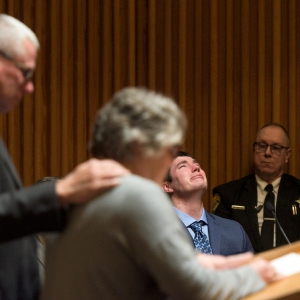 Dartmouth alumnus gets 20-to-40-year sentence in rape case
Dartmouth alumnus gets 20-to-40-year sentence in rape case
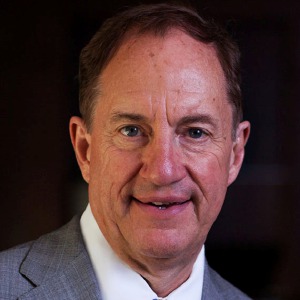 President of Vermont Law and Graduate School to step down this summer
President of Vermont Law and Graduate School to step down this summer
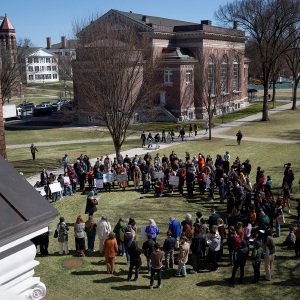 Walkout at Dartmouth calls attention to Trump’s attacks on universities, conditions in Gaza
Walkout at Dartmouth calls attention to Trump’s attacks on universities, conditions in Gaza
Scott Brown is the former chair of the board of directors of Mercy Corps and former dean of the Tucker Foundation at Dartmouth College. He lives in Hanover.






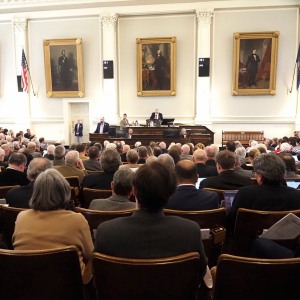 Editorial: New Hampshire budget shortfall is a crisis of Republican design
Editorial: New Hampshire budget shortfall is a crisis of Republican design Editorial: Time is running out for American democracy
Editorial: Time is running out for American democracy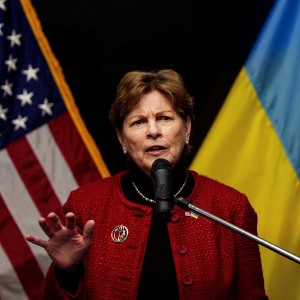 Editorial: Jeanne Shaheen blazed a trail in politics
Editorial: Jeanne Shaheen blazed a trail in politics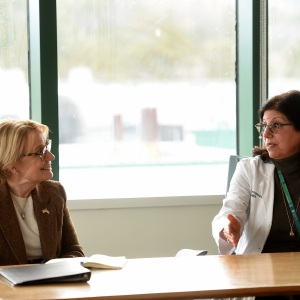 Column: Federal funding for medical research puts America first
Column: Federal funding for medical research puts America first
